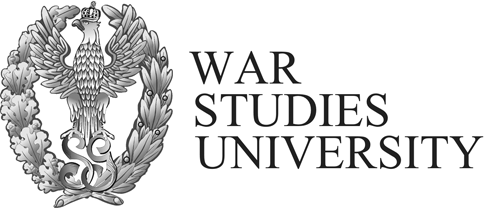The full-scale military aggression unleashed by the Russian Federation on Ukraine has changed the architecture of international security and has also served as a reminder of how serious a threat of hybrid actions is to state and international security. Cyberattacks, information warfare, instrumentalisation of migratory movements, fuelling anti-refugee sentiment, and acts of sabotage targeting the critical infrastructure of North Atlantic Treaty Organization (NATO) and European Union (EU) states are some examples of the broad spectrum of Russian activity.
For the first time in history, a global economic war, which began when Russia cut off trade channels connecting Ukraine to the world's markets, is being fought alongside a regional military conflict, with Russia invading its Western neighbour. This new reality has disrupted traditional power dynamics. While the collective West—understood as NATO, the EU, and their international allies—has avoided an open military conflict with Russia, Moscow has declared in its most recent foreign policy concept that it is at war with the West and Western values.
Geopolitically, this conflict is forcing nations to take sides, splitting old alliances and perhaps forming new power blocs. It has deep repercussions for global security, as it touches upon each and every aspect of the society. Hybrid warfare has increasingly been present in Central and Eastern Europe since the early 2000s, when Russia started to re-establish its influence over its buffer zone: the area that the USSR—its former states and satellites—dominated during the Cold War. At the same time, by growing its economic influence in Europe by offering its energy supplies to most European states, Moscow ensured its influence over the continent’s stable socio-economics.
As a result of Moscow limiting Ukraine's ability to trade with the rest of the world, as well as subsequent supply chain disruptions since 2022, a new environment has emerged, with new business relationships appearing in support of new trade corridors and as a foundation for what Russia envisions as a new global power balance. The war's impact on food and energy security, particularly in poorer nations, has the potential to significantly disrupt the global order. Simply put, the world is restructuring and Central and Eastern Europe is at the forefront of this process. This region is experiencing the most acute security problems, highlighting the most significant challenges to the present security architecture that extends beyond Europe. This complex reality represents a pivotal moment, with the potential for a long-term reshaping of the world order.
Hybrid activities expose Western states to further dangers and can also destabilise their functioning. Their multidimensionality provokes an in-depth debate on new challenges to national and international security. It is not only the war in Ukraine and hybrid attacks that are a threat to Europe. The region is also indirectly affected by the extreme escalation of the conflict between Israel and Hamas in October 2023, along with the constant and uncontrolled migration to Europe from Africa and Asia. Even threats, such as the possible escalation of unrest in the South China Sea, or China's desire to annex Taiwan by force, the withdrawal of European states from Africa and the takeover of these areas by the so-called Wagner group, and the still unstable situation in parts of Latin America, are causes for serious concern. This is compounded by internal threats, such as the polarisation of societies, the growing influence of extreme and populist parties, physical attacks on politicians, and the still unstable economies of post-pandemic countries with rising energy commodity prices. The weakening role of the United States as a leader in international politics and its systematic problems with financing its public debt (possible bankruptcy) has led to speculation as to how much longer it will be able to engage politically and militarily in various regions of the world.
Given the complex and growing security scene, this volume dives into various crucial themes that emphasise the shifting dynamics brought about by current events, going beyond the immediate consequences of the armed conflict in Ukraine and instead looking at the repercussions of the global economic war, which has started a worldwide restructuring process.
In an article about China's increasing security ties with Africa in the new millennium, Monika Krukowska investigates the motivations behind this partnership and its possible influence on the continent's strategic landscape. At the same time, the paper concludes with some of the key elements that define the implications for China becoming a global security supplier in the future, as well as the challenges Beijing may face in this respect.
Isti Marta Sukma examines in her paper how technology affects political science, focusing on its function in relation to power, a concept fundamentally linked to realism. The study focuses on three case studies. The first case study examines the complexity of cyberpolitics in Xinjiang. The second examines Indonesia's political power struggle and technology's involvement in the 2024 elections, and the third analyses the exploitation of information and electronic transaction regulations to suppress freedom of expression. The report also presents a case study on Indo-Pacific regional power dynamics in fighting “digital authoritarianism.” All these conclude that there is a need for a new theoretical framework, adopted from political realism, to be developed so that technology could be placed at the centre of analysis. The author calls this new framework “techno-realism,” which, as it is developed, will help navigate complicated political environments and explain strategic solutions to emerging difficulties by recognising the essential roles of technology, identity formation, and non-state actors in the contemporary world.
Marlena Zadorożna looks at the important topic of the weaponisation of information by looking at the way Russia has designed its disinformation campaigns in Moldova and Poland amidst the ongoing war in Ukraine. The case studies highlight the way Russia improves the sophistication of its disinformation tactics when engaging in a military conflict, considering Moscow’s purpose to destabilise neighbouring countries and influence regional security. The paper concludes that there is a need for a theoretical basis that would further enable a strengthened and coordinated interstate defensive response against such tactics.
The volume also explores the role of economic cooperation in times of war. Marta Gębska has conducted thorough research into the theory of economic and institutional liberalism in connection to the Three Seas Initiative (3SI), a new type of European collaboration. The goal is to highlight the relationship between the Three Seas Investment Fund (3SIIF) and Ukraine.
Next, Joanna Przybylak tackles the precarious situation of nuclear power plants in war zones. The war in Ukraine has provided several important lessons on attacking or seizing nuclear power plants (NPPs) to achieve military and political goals in conflicts up to mid-2023. The study used a qualitative research technique, analysing academic research and international legislation.
The focus then shifts to Eastern Europe, with Tegg Westbrook writing about the threat of jamming and spoofing in relation to continuing political tensions between Russia and the area. Worst-case scenarios are predicated on the former's intentions. The paper also investigates the vulnerabilities of aircraft to this tactic and its potential implications for regional security.
Finally, Nicole Jackson writes about the Canadian government's security perceptions and response to misinformation during the Russo-Ukrainian war. This study contributes to the growing body of academic research on purposeful deception as a hybrid war tactic and how governments are responding.
All in all, this collection offers a multifaceted perspective on contemporary security concerns, delving into critical issues that are shaping the international landscape in the 21st century.




